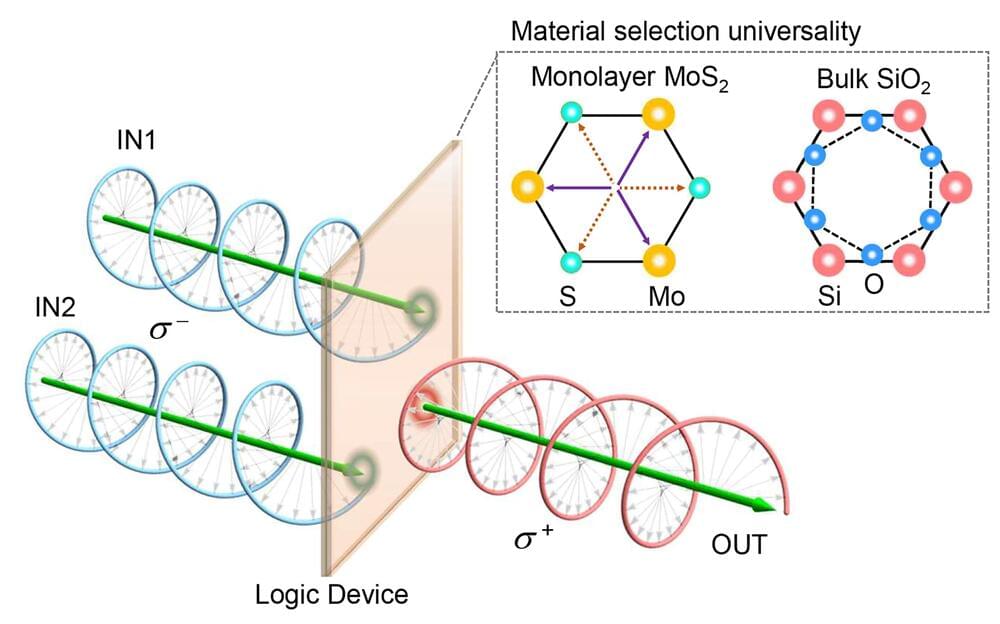Logic gates are the fundamental components of computer processors. Conventional logic gates are electronic—they work by shuffling around electrons—but scientists have been developing light-based optical logic gates to meet the data processing and transfer demands of next-generation computing.
New optical chirality logic gates developed by researchers at Aalto University operate about a million times faster than existing technologies, offering ultrafast processing speeds.
The new approach uses circularly polarized light as the input signal. The logic gates are made from crystalline materials that are sensitive to the handedness of a circularly polarized light beam—that is, the light emitted by the crystal depends on the handedness of the input beams. This serves as the basic building block for one type of logic gate (XNOR), and the remaining types of logic gates are built by adding filters or other optical components.
